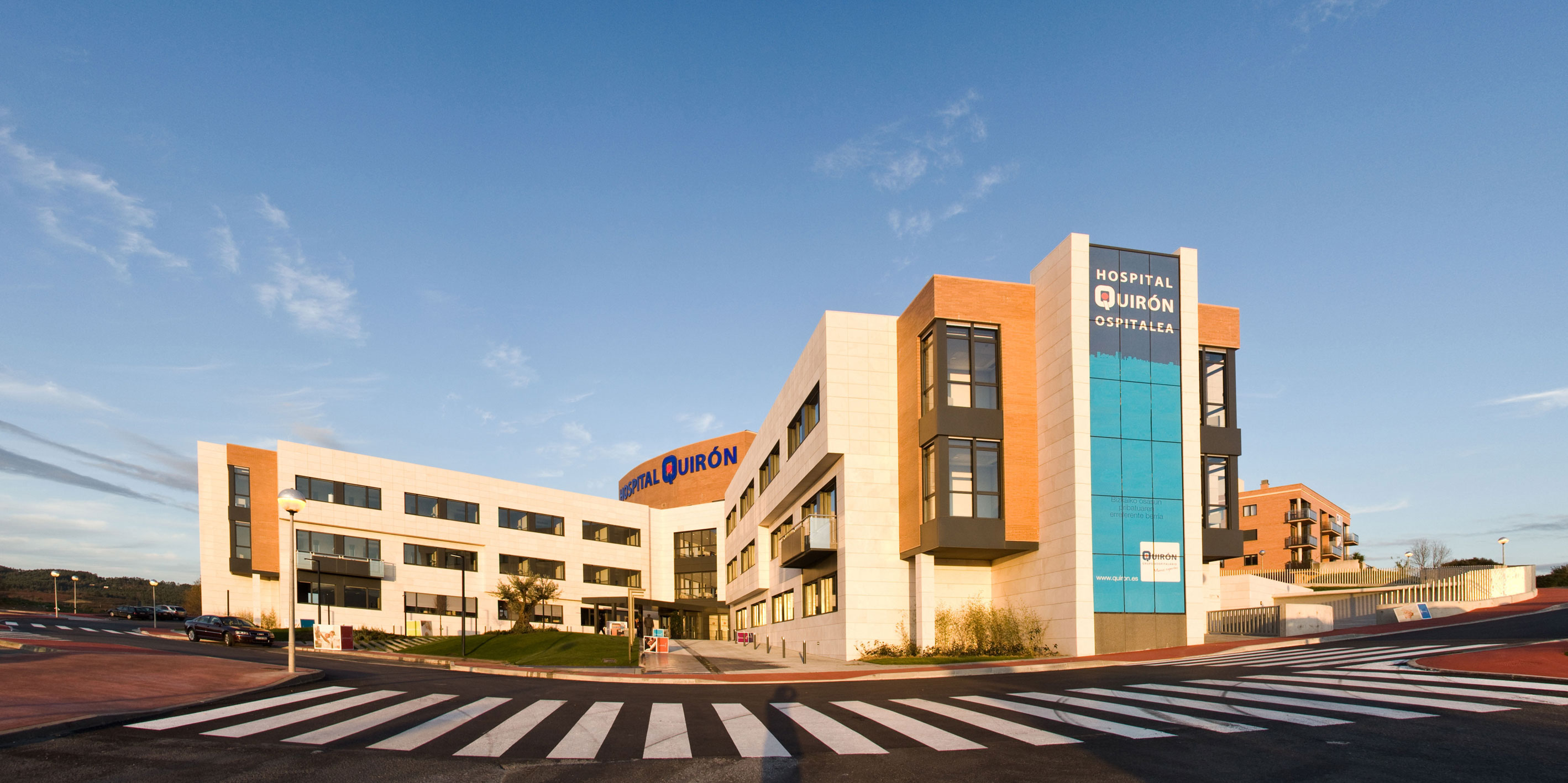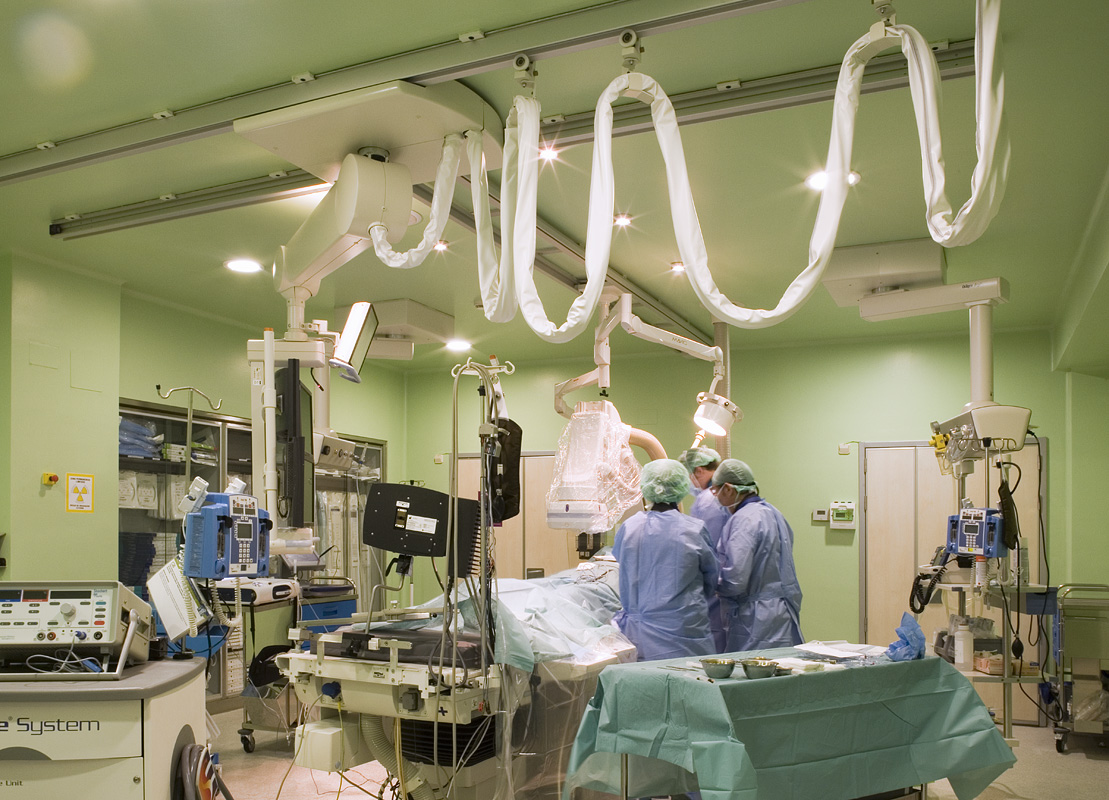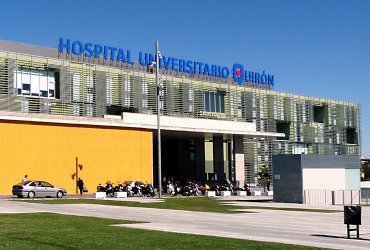Fresenius Helios closed its €5.76 billion acquisition of IDC Salud Holding S.L.U. (”Quirónsalud”) today, as planned. Quirónsalud will be consolidated as of February 1, 2017.
Of the total purchase price for Spain’s largest private hospital operator, €5.36 billion had already been debt-financed. The balance of €400 million was paid in the form of 6,108,176 new Fresenius shares issued today from authorized capital excluding subscription rights.
Quirónsalud’s network is comprised of 43 hospitals, 39 outpatient centers and about 300 Occupational Risk Prevention centers located in all economically important areas of Spain. The company has about 35,000 employees and offers the full spectrum of inpatient and outpatient care. With the acquisition, Fresenius Helios strengthens its position as Europe’s largest private hospital operator.
This release contains forward-looking statements that are subject to various risks and uncertainties. Future results could differ materially from those described in these forward-looking statements due to certain factors, e.g. changes in business, economic and competitive conditions, regulatory reforms, results of clinical trials, foreign exchange rate fluctuations, uncertainties in litigation or investigative proceedings, and the availability of financing. Fresenius does not undertake any responsibility to update the forward-looking statements in this release.
- No conditions by Spanish antitrust authority
- Closing of transaction expected by January 31, 2017
Fresenius Helios today received antitrust approval to acquire Quirónsalud, Spain’s largest private hospital operator. The relevant Spanish antitrust authority has approved the transaction without imposing conditions. The acquisition can therefore be closed by January 31, 2017. Quirónsalud will be consolidated as of February 1, 2017.
Quirónsalud’s network is comprised of 43 hospitals, 39 outpatient centers and around 300 Occupational Risk Prevention (“ORP”) centers located in all economically important areas in Spain. The company has about 35,000 employees and offers the full spectrum of inpatient and outpatient care. With the acquisition, Fresenius Helios strengthens its position as Europe’s largest private hospital operator.
Given the expected meaningful accretion to Group sales and earnings, Fresenius will publish new mid-term targets as part of its full-year 2016 reporting.
This release contains forward-looking statements that are subject to various risks and uncertainties. Future results could differ materially from those described in these forward-looking statements due to certain factors, e.g. changes in business, economic and competitive conditions, regulatory reforms, results of clinical trials, foreign exchange rate fluctuations, uncertainties in litigation or investigative proceedings, and the availability of financing. Fresenius does not undertake any responsibility to update the forward-looking statements in this release.
- No conditions by Spanish antitrust authority
- Closing of transaction expected by January 31, 2017
Fresenius Helios today received antitrust approval to acquire Quirónsalud, Spain’s largest private hospital operator. The relevant Spanish antitrust authority has approved the transaction without imposing conditions. The acquisition can therefore be closed by January 31, 2017. Quirónsalud will be consolidated as of February 1, 2017.
Quirónsalud’s network is comprised of 43 hospitals, 39 outpatient centers and around 300 Occupational Risk Prevention (“ORP”) centers located in all economically important areas in Spain. The company has about 35,000 employees and offers the full spectrum of inpatient and outpatient care. With the acquisition, Fresenius Helios strengthens its position as Europe’s largest private hospital operator.
Given the expected meaningful accretion to Group sales and earnings, Fresenius will publish new mid-term targets as part of its full-year 2016 reporting.
This release contains forward-looking statements that are subject to various risks and uncertainties. Future results could differ materially from those described in these forward-looking statements due to certain factors, e.g. changes in business, economic and competitive conditions, regulatory reforms, results of clinical trials, foreign exchange rate fluctuations, uncertainties in litigation or investigative proceedings, and the availability of financing. Fresenius does not undertake any responsibility to update the forward-looking statements in this release.
Fresenius Helios has laid the foundation stone for a new main building at HELIOS Hospital Dr. Horst Schmidt Kliniken in the German city of Wiesbaden, near Frankfurt. The seven-story structure, with 96,000 square meters (about 1 million square feet) of floor space, is being erected beside the existing clinic. It will have 22 operating rooms, more than 900 beds, and a design that significantly reduces distances and waiting times for patients. HELIOS is investing about €200 million in the new building, while the state of Hesse is contributing €68 million. Completion is scheduled for 2020.
Fresenius Helios has laid the foundation stone for a new main building at HELIOS Hospital Dr. Horst Schmidt Kliniken in the German city of Wiesbaden, near Frankfurt. The seven-story structure, with 96,000 square meters (about 1 million square feet) of floor space, is being erected beside the existing clinic. It will have 22 operating rooms, more than 900 beds, and a design that significantly reduces distances and waiting times for patients. HELIOS is investing about €200 million in the new building, while the state of Hesse is contributing €68 million. Completion is scheduled for 2020.
Construction has begun at the HELIOS hospital in Hildesheim, a city in the German state of Lower Saxony, on a fourth hospital block. The nearly 6,000-square-meter (65,000 square feet), three-story building will house wards for ear, nose and throat medicine, oral-facial, and thoracic surgery. A pulmonary clinic acquired in 2014, currently situated in nearby Diekholzen, will be relocated to the new building including a sleep lab twice as large as the existing one. HELIOS is investing about €13 million in the new block of wards. Completion is expected in 2018.
- Adds 43 hospitals across Spain and sales of approximately €2.5 billion1 to HELIOS’ leading German network
- Mutual best-practice transfer to further enhance quality patient care in both markets, creating a European leader in hospital management
- Substantial growth opportunities and cost synergies
- Highly accretive to Group earnings per share from 2017
Fresenius Helios acquires IDC Salud Holding S.L.U. (“Quirónsalud”), Spain’s largest private hospital operator, for a purchase price of €5.76 billion2. Quirónsalud’s network is comprised of 43 hospitals, 39 outpatient centers and around 300 Occupational Risk Prevention (“ORP”) centers located in all economically important areas in Spain. The company has about 35,000 employees and offers the full spectrum of inpatient and outpatient care. Quirónsalud was created by the merger of IDC Salud (“IDC”) and Grupo Hospitalario Quirón (“GHQ”) in 2014.
12016 estimate2On a cash and debt-free basis
Quirónsalud has posted organic sales growth of more than 5% p.a. in recent years. Growth is driven by an above-market increase of patient admissions due to excellent quality of care combined with consistently short waiting times.
Quirónsalud is also a pioneer in public-private partnership (“PPP”) models, operating five hospitals (four in Madrid and one in Barcelona) that are integrated within the public healthcare network. Under the PPP agreements, Quirónsalud is assigned responsibility for the publicly insured inhabitants of certain coverage areas and receives remuneration based on capitation or activity performed.
Greenfield hospital projects and acquisitions have also contributed to Quirónsalud’s overall strong sales growth. Going forward, cross-selling between the recently acquired ORPs and Quirónsalud’s hospitals are expected to be yet another growth driver.
For 2016, Quirónsalud expects sales of approximately €2.5 billion and EBITDA of €460 to €480 million. In 2017, EBITDA is expected to be in the range of €520 to €550 million. The purchase price corresponds to approximately 10.8x at the mid-point of the 2017 EBITDA range.
Key drivers of the anticipated EBITDA growth are already implemented synergy projects related to the 2014 merger of IDC and GHQ, recent acquisitions, well-advanced efficiency projects as well as operating leverage. Neither greenfield projects, further acquisitions nor synergies with HELIOS are included in the 2017 projections. In the medium-term, the merger of HELIOS and Quirónsalud is expected to lead to incremental pre-tax synergies of approximately €50 million p.a. without meaningful implementation expenses.
Stephan Sturm, CEO of Fresenius, said: “This acquisition combines two leaders in terms of quality and size. Our patients will benefit from the exchange of knowledge and ideas. For Fresenius, this acquisition is another strategic step towards offering quality and yet affordable care for patients worldwide.”
Francesco De Meo, CEO of Fresenius Helios, said: “We are acquiring the largest private hospital operator in Spain, Europe’s number four. Quirónsalud has shown an impressive development and stands for best-in-class quality in patient care. Quirónsalud and HELIOS perfectly fit together as we can leverage on each other’s experience and knowledge. The new group will preserve both brands, Quirónsalud in Spain and Helios in Germany. I am particularly delighted that Víctor Madera will, beyond his ongoing role as CEO of Quirónsalud, play a very active role in our combined group. We aim to achieve the best for our patients in Germany and Spain, and, together with our Spanish partners, intend to leave a mark in the European health care system.”
Víctor Madera, founder and CEO of Quirónsalud, said: “I am extremely pleased to join such a splendid organization as HELIOS and very much look forward to a fruitful cooperation with Francesco De Meo. I am firmly convinced that HELIOS and Quirónsalud are ideal partners to achieve the best care for our patients in both Germany and Spain.”
Fresenius Helios acquires 100% of the share capital in Quirónsalud. Sellers are the private equity group CVC Capital Partners, Víctor Madera and other members of Quirónsalud’s management board.
Fresenius will issue 6,108,176 shares valued at €400 million to Víctor Madera who has agreed to a two year lock-up period. The balance of the purchase price will be debt-financed.
Group net debt/EBITDA will temporarily increase to approximately 3.1. Already in mid-2017, the leverage ratio is expected to return to the 2.5 to 3.0 target range.
The transaction is subject to regulatory approval by the relevant antitrust authorities and is expected to close in Q4/2016 or Q1/2017.
The transaction is expected to be highly accretive to Group net income1 and EPS1 already in 2017.
Given the expected meaningful accretion to Group sales and earnings, Fresenius will publish new mid-term targets as part of its full-year 2016 reporting.
1Net income attributable to shareholders of Fresenius SE & Co. KGaA
Telephone Conference
A telephone conference concerning the acquisition of Quirónsalud will be held at 2.00 p.m. CEST on Tuesday, 6 September, 2016. All investors are cordially invited to follow the conference call in a live broadcast via the Internet at www.fresenius.com/events-and-presentations. Following the call, a replay will be available on our website.
This release contains forward-looking statements that are subject to various risks and uncertainties. Future results could differ materially from those described in these forward-looking statements due to certain factors, e.g. changes in business, economic and competitive conditions, regulatory reforms, results of clinical trials, foreign exchange rate fluctuations, uncertainties in litigation or investigative proceedings, and the availability of financing. Fresenius does not undertake any responsibility to update the forward-looking statements in this release.
- Adds 43 hospitals across Spain and sales of approximately €2.5 billion1 to HELIOS’ leading German network
- Mutual best-practice transfer to further enhance quality patient care in both markets, creating a European leader in hospital management
- Substantial growth opportunities and cost synergies
- Highly accretive to Group earnings per share from 2017
Fresenius Helios acquires IDC Salud Holding S.L.U. (“Quirónsalud”), Spain’s largest private hospital operator, for a purchase price of €5.76 billion2. Quirónsalud’s network is comprised of 43 hospitals, 39 outpatient centers and around 300 Occupational Risk Prevention (“ORP”) centers located in all economically important areas in Spain. The company has about 35,000 employees and offers the full spectrum of inpatient and outpatient care. Quirónsalud was created by the merger of IDC Salud (“IDC”) and Grupo Hospitalario Quirón (“GHQ”) in 2014.
Quirónsalud has posted organic sales growth of more than 5% p.a. in recent years. Growth is driven by an above-market increase of patient admissions due to excellent quality of care combined with consistently short waiting times.
Quirónsalud is also a pioneer in public-private partnership (“PPP”) models, operating five hospitals (four in Madrid and one in Barcelona) that are integrated within the public healthcare network. Under the PPP agreements, Quirónsalud is assigned responsibility for the publicly insured inhabitants of certain coverage areas and receives remuneration based on capitation or activity performed.
Greenfield hospital projects and acquisitions have also contributed to Quirónsalud’s overall strong sales growth. Going forward, cross-selling between the recently acquired ORPs and Quirónsalud’s hospitals are expected to be yet another growth driver.
For 2016, Quirónsalud expects sales of approximately €2.5 billion and EBITDA of €460 to €480 million. In 2017, EBITDA is expected to be in the range of €520 to €550 million. The purchase price corresponds to approximately 10.8x at the mid-point of the 2017 EBITDA range.
Key drivers of the anticipated EBITDA growth are already implemented synergy projects related to the 2014 merger of IDC and GHQ, recent acquisitions, well-advanced efficiency projects as well as operating leverage. Neither greenfield projects, further acquisitions nor synergies with HELIOS are included in the 2017 projections. In the medium-term, the merger of HELIOS and Quirónsalud is expected to lead to incremental pre-tax synergies of approximately €50 million p.a. without meaningful implementation expenses.
Stephan Sturm, CEO of Fresenius, said: “This acquisition combines two leaders in terms of quality and size. Our patients will benefit from the exchange of knowledge and ideas. For Fresenius, this acquisition is another strategic step towards offering quality and yet affordable care for patients worldwide.”
Francesco De Meo, CEO of Fresenius Helios, said: “We are acquiring the largest private hospital operator in Spain, Europe’s number four. Quirónsalud has shown an impressive development and stands for best-in-class quality in patient care. Quirónsalud and HELIOS perfectly fit together as we can leverage on each other’s experience and knowledge. The new group will preserve both brands, Quirónsalud in Spain and Helios in Germany. I am particularly delighted that Víctor Madera will, beyond his ongoing role as CEO of Quirónsalud, play a very active role in our combined group. We aim to achieve the best for our patients in Germany and Spain, and, together with our Spanish partners, intend to leave a mark in the European health care system.”
Víctor Madera, founder and CEO of Quirónsalud, said: “I am extremely pleased to join such a splendid organization as HELIOS and very much look forward to a fruitful cooperation with Francesco De Meo. I am firmly convinced that HELIOS and Quirónsalud are ideal partners to achieve the best care for our patients in both Germany and Spain.”
Fresenius Helios acquires 100% of the share capital in Quirónsalud. Sellers are the private equity group CVC Capital Partners, Víctor Madera and other members of Quirónsalud’s management board.
Fresenius will issue 6,108,176 shares valued at €400 million to Víctor Madera who has agreed to a two year lock-up period. The balance of the purchase price will be debt-financed.
Group net debt/EBITDA will temporarily increase to approximately 3.1. Already in mid-2017, the leverage ratio is expected to return to the 2.5 to 3.0 target range.
The transaction is subject to regulatory approval by the relevant antitrust authorities and is expected to close in Q4/2016 or Q1/2017.
The transaction is expected to be highly accretive to Group net income3 and EPS3 already in 2017.
Given the expected meaningful accretion to Group sales and earnings, Fresenius will publish new mid-term targets as part of its full-year 2016 reporting.
12016 estimate
2On a cash and debt-free basis
3Net income attributable to shareholders of Fresenius SE & Co. KGaA
Telephone Conference
A telephone conference concerning the acquisition of Quirónsalud will be held at 2.00 p.m. CEST on Tuesday, 6 September, 2016. You are cordially invited to follow the conference call in a live broadcast via the Internet. Following the call, a replay will be available on our website.
This release contains forward-looking statements that are subject to various risks and uncertainties. Future results could differ materially from those described in these forward-looking statements due to certain factors, e.g. changes in business, economic and competitive conditions, regulatory reforms, results of clinical trials, foreign exchange rate fluctuations, uncertainties in litigation or investigative proceedings, and the availability of financing. Fresenius does not undertake any responsibility to update the forward-looking statements in this release.
The “Wir für Gesundheit” hospital network in Germany continues to grow: PlusCard, a supplementary company health insurance, will be accepted starting immediately at Klinikum Ingolstadt. With more than 1,000 beds, this hospital is one of the largest in the state of Bavaria. PlusCard offers employers various coverage options to provide employees with different levels of service and comfort. “Wir für Gesundheit” was formed by hospital operators Asklepios, Fresenius Helios and Rhön, and has more than 120 partner hospitals in Germany committed to comply with quality standards far higher than those required by law.







